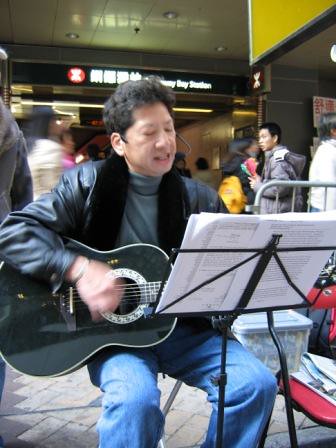Tom Clancy, the internationally renowned spy thriller writer died
lastweek at the age of 66. In one of his books, he said this through
themouth of one of his characters, “The main requirement to enter the
politicalprofession was nothing more or less than the ability to be
pleasant to peoplewhom you despised, and then to do business with them
as if they were bosomfriends.”
While I can never
claimto be able to master such an art, the philosophy behind this
graphic quote isclear: in politics, you must not let your personal likes
and dislikes come intoplay. But it seems some of the PanDemocrats are
doing exactly that. Manydislike the Basic Law, especially Article 45,
where it stipulates that beforethe Chief Executive of the Hong Kong SAR
could be universally elected, thereshall be a Nomination Committee in
charge of nomination of candidates for thepost of Chief Executive.
Still moredislike the decision of the Standing Committee of the
National People’sCongress where it “offered” its “opinion” that the make
–up of such NominationCommittee “may refer to” the make-up of the
current Election Committee.
The current
ElectionCommittee, of course, is a small circle committee, where a Pan
Democrat justfinds it hard to barge in. If one simplychanges the name
of the small circle committee and call it a NominationCommittee, what
hope does a Pan Democrat have in getting the necessarynomination to run
for Chief Executive? So let’s rewrite the rules of nomination and let
the common peoplenominate a candidate. In a perfectworld, this is of
course the ideal thing to do; and any one with true Democracyat heart
can never deny this is perhaps the only right thing to do. But this is
not a perfect world.
First, the Basic Lawmentions not a
hint of civil nomination. In fact, the very fact that aNomination
Committee was stipulated suggests that there should be no othermeans of
nomination. Otherwise, whybother to set up a Nominating Committee? The
Pan Democrats argued that the civilnomination can be put to the
Nomination Committee which can then endorse thenomination in its own
name. Yes, ofcourse it can do that and it would not be
unconstitutional. But if so, the Nomination Committee maysimply be a
rubber stamp and lose the very meaning of its existence. Thatclearly was
not what Beijing had in mind when it promulgated the Basic Law.
Others
argued that the civilnomination can be “recommended” to the Nomination
Committee and let it decidewhat to do with it. That suggestion is even
more pretentious. If the Nomination Committee simply adopts
thenomination then we are back to the original argument above. If the
Nomination Committee were to deny thenomination then we will definitely
have a constitutional crisis on ourhands. Just imagine what the
reaction ofthe public would be like when a small circle committee with
little or nocredibility ignores the view of the public, especially in
the midst of aterritory wide election for Chief Executive? The truth is,
civil nominationdoes not pose a constitutional or legal problem. It is
a political problem.
You may ask, but is civil
nomination the only way out? Few Democrats dare say no. The entire
focus and all the deployableresources of the Pan Democrats have been put
on the issue of civil nominationever since the topic of universal
suffrage has re-emerged from last year’sLegCo election. Any suggestion
for analternative model would be viewed as “betraying” the Democratic
Movement, or aDevils’ Pact. So even though manymoderates are seriously
worrying that the entire Political Reform may bederailed on the single
issue of civil nomination, few dare to speak out.
But
Devil’s Pact aside, is there any real alternative? I think there is.
The reason why civil nomination was raised inthe first place is the
immense distrust of the Election Committee. For many years, “election”
of the ChiefExecutive, especially the rise of C. Y. Leung, was put down
as the result of a“small circle election” in the form of the Election
Committee. A small circle nomination of a candidate for ChiefExecutive
is even worse because it deceives the people into thinking there
isgenuine democracy when in truth there is not.
So the
vice is really in the make-up of the Nomination Committee
whichseriously impairs its credibility. If wecan somehow build up the
credibility of the Nomination Committee then we arehalf way there.
How? We must remember the NPCSC merely spoke of“may refer” to the
make-up of the Election Committee. They must know it simply will not
work if onewere simply to change the name tag of the Election
Committee. There must be genuine change to therepresentativeness of the
Election Committee before it can qualify to becomethe Nomination
Committee. This must bethe necessary common understanding between both
Beijing and the PanDemocrats. After all, the art ofpolitics is not
about defining the differences of the two sides; but the
earlyidentification of the area of agreement, no matter how small that
may be. Rather than to allow the gap between Beijingand the Pan
Democrats to widen the argument over civil nomination, should wenot at
least devote part of our energy towards agreeing on how to reform
theElection Committee? At the very least,we owe it to Hong Kong to give
it a try.
